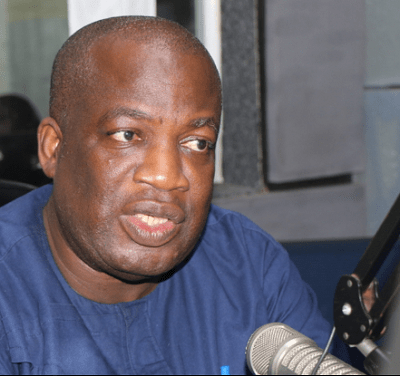Dr. Serebour Quaicoe, the Director of Electoral Services at the Electoral Commission (EC), has disclosed that a Constitutional Instrument (C.I) has been submitted to parliament to establish the Guan constituency.
The Guan constituency will encompass the Santrokofi, Akpafu, Lipke, and Lolobi (SALL) Traditional Areas, which were unable to vote for parliamentary representation in the 2020 elections.
Speaking on PM Express, Dr. Quaicoe explained that even though the Guan district assembly was created in November 2020, there wasn’t sufficient time for the EC to present the C.I to parliament before the general elections in December. Consequently, the constituency could not be fully activated, leaving its residents without parliamentary representation.
Dr. Quaicoe elaborated, “Let us also understand that once you are creating a constituency, you have to pass a C.I to establish it. And every C.I should be before parliament for 21 sitting days before it can pass. So automatically if you establish a district in November, there’s no way you can have the 21 days passing before. That’s why they couldn’t vote for the parliamentary. But the presidential, they voted.”
He further noted that all necessary preparations, including engagements and the pre-laying stage, have been completed this time. Therefore, if parliament resumes its sitting for the required 21 days, the C.I is expected to be passed by December 2023, enabling the establishment of the Guan constituency.
Background:
In the lead-up to the 2020 elections, the Electoral Commission (EC) issued a directive that excluded the SALL Traditional Areas from participating in the parliamentary elections. While voters in these areas were allowed to vote in the Buem Constituency for the presidential election, they were instructed by the EC not to take part in the parliamentary elections.
This decision prompted some residents of Santrokofi, Akpafu, Likpe, and Lolobi (SALL) to take legal action against then Hohoe MP-elect John Peter Amewu and the EC. They argued that their rights had been violated by not being allowed to vote in the parliamentary elections.
They obtained a 10-day injunction against the gazetting of John Peter Amewu as the winner of the polls. However, the Deputy Attorney-General at the time, Godfred Yeboah Dame, who is now the country’s Attorney-General, filed an application at the Supreme Court, urging it to restrain the Ho High Court from hearing the case.
He asserted that SALL residents did not have voting rights in Hohoe, as the Supreme Court had already ruled that the area fell within the Oti region.
The Supreme Court determined that any challenge to Mr. Amewu’s election should be pursued through an election petition rather than a human rights action at the High Court.
Despite the SALL residents’ request for a review, the Supreme Court affirmed its earlier decision that the Ho High Court had made errors of law. The seven-member panel ruled that the request for review did not meet the necessary threshold.









































